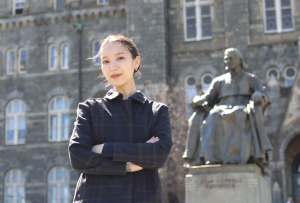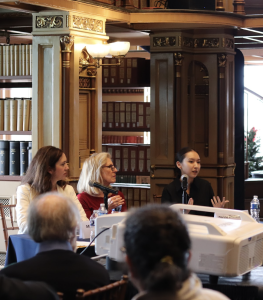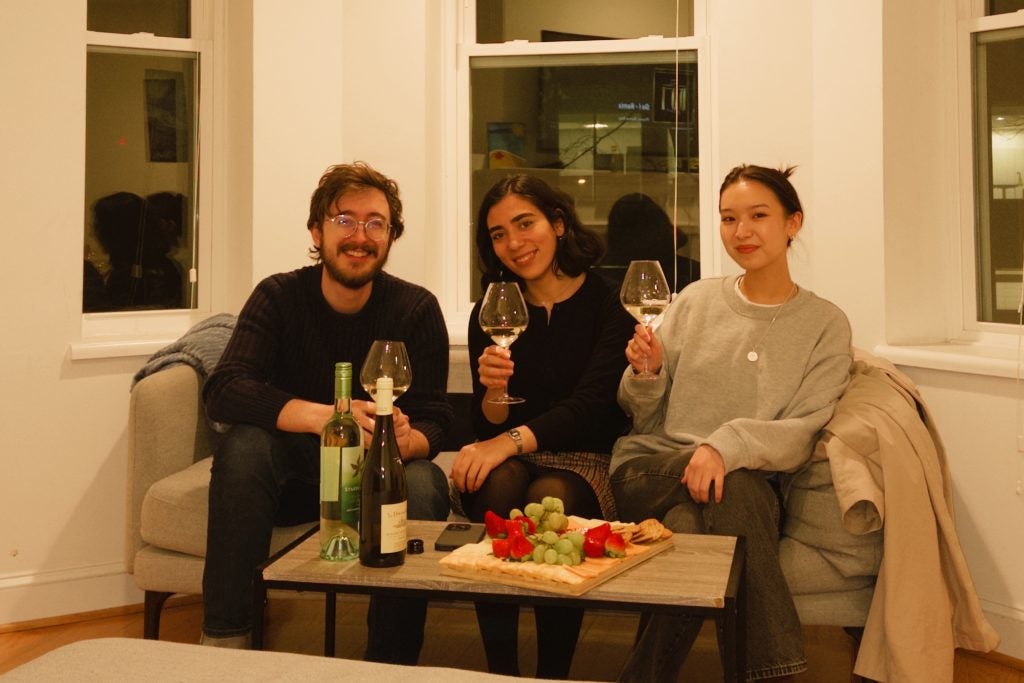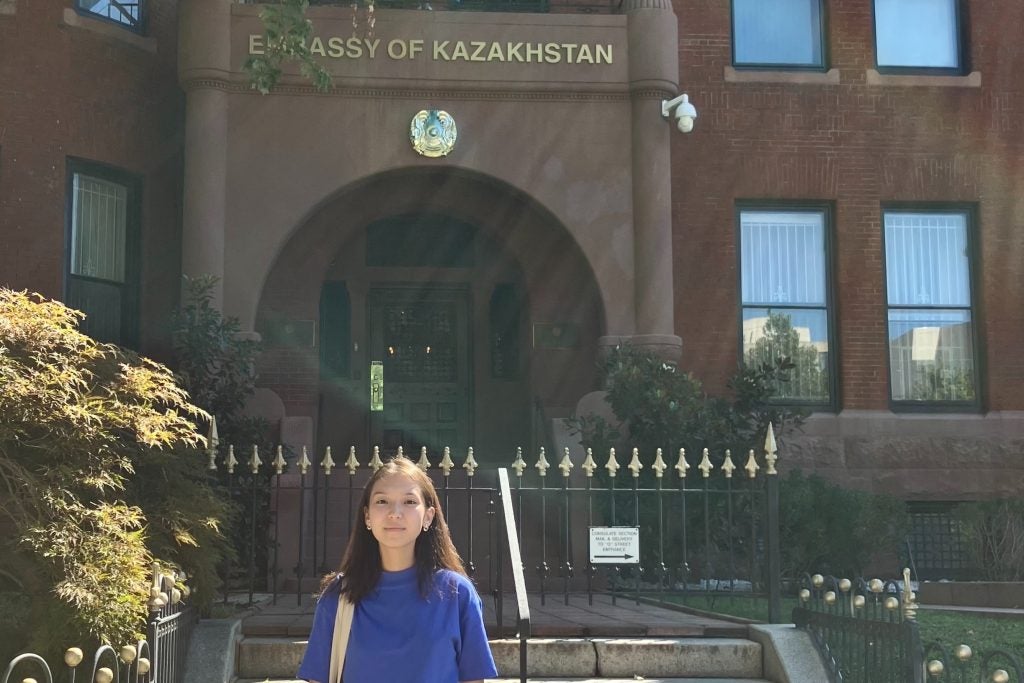
Coming to Georgetown University from her home country of Kazakhstan, Darina Zhunussova (MAERES’24) brought with her a passion for international relations and anthropology. She was drawn to the university for its renowned programs and the vibrant community it promised.
She came to the Center for Eurasian, Russian, and East European Studies (CERES) master’s program, which offered her an interdisciplinary lens through which to view her native region’s dynamics. “I chose the Eurasian, Russian, and East European Studies program because of my deep passion for the region and its rich cultural heritage,” Zhunussova says. “I am very proud to be part of the CERES community.”
In the Classroom
Zhunussova’s choice of study was driven by an intrinsic connection to her homeland and a curiosity about its place in the broader geopolitical landscape. “Coming from Kazakhstan, I have [been] seeking to gain a nuanced understanding of Central Asia,” she says. Zhunussova enjoys the multidisciplinary nature of the MAERES program. “It offers a holistic understanding of the region from various perspectives, including history, politics, culture and economics.”
This passion was nurtured through courses like Demography and Health in Eurasia, where Adjunct Professor Judy Twigg’s enthusiasm and experience in the subject provided Zhunussova with a nuanced understanding of the region’s demographic challenges. “Professor Twigg taught with a passion and expertise that made each lecture engaging and thought-provoking,” Zhunussova says.
Fieldwork and Real-World Application

“During my time at Georgetown, I found myself increasingly drawn to ethnographic research and anthropology,” Zhunussova says. The theoretical knowledge she gained within the classrooms of SFS was complemented by Zhunussova’s fieldwork in Kazakhstan, where she engaged in ethnographic research through interviewing Russian immigrants to Kazakhstan. The capstone focused on understanding Russian immigrant adaptation and polarization in Kazakhstan after the Russian invasion of Ukraine in 2022. Zhunussova conducted 40 in-depth interviews focusing on immigrants’ experience with discrimination and comparing the Russian state narrative to immigrants’ actual experiences. This hands-on experience was crucial for her capstone project and her ambitions to apply academic insights to real-world contexts.
Fostering Community and Celebrating Diversity
At Georgetown, Zhunussova found more than just an academic community; she found a second home. Through her role as a student fellow and program assistant at CERES, she became a part of a vibrant ecosystem, contributing to the center’s academic and cultural initiatives.
The Nowruz celebration by the Georgetown Iranian Cultural Society was a crucial moment for Zhunussova, symbolizing the university’s embrace of cultural diversity. This festival, which marks the new year at the spring equinox in Kazakhstan and throughout the region, is rich with traditions of renewal, unity, and the rejuvenation of nature. Reflecting on this, Zhunussova says, “Georgetown became not just a place of learning, but a home away from home where our cultural identities were celebrated and honored with open arms.”
Mentorship played a critical role in Zhunussova’s journey at SFS. She credits professors Kathleen Smith, Michael David-Fox and Jennifer Wistrand for their invaluable guidance on her capstone project and academic endeavors, and CERES Director of Academic Programs Lisa Gordinier’s support for non-academic challenges. “I am thankful to each and every professor that I had the privilege to work with or take a class from,” Zhunussova says.

